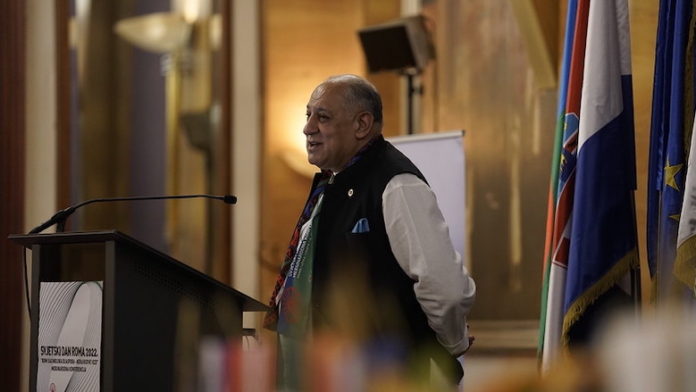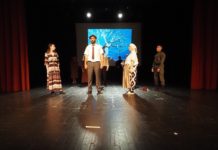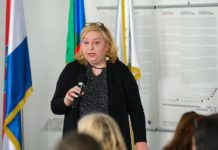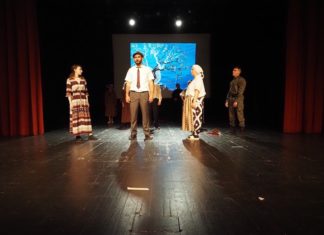Hristo Kyuchukov is a German scientist who is born and raised up in Bulgaria). He is a professor of Romani linguistics and Intercultural education at the University of Silesia, Katowice, Poland and known in Europe and worldwide for his research on Romani and Turkic (Balkan Turkish and Gagauz) languages, psycholinguistic research with Roma and Turkish children, research on human, linguistic and educational rights of Roma worldwide, on intercultural education of migrant and refugee children and on Roma history and culture.
In the 1990s, Prof. Kyuchukov introduced Romani language education for primary and secondary school children in Bulgaria, and in the 2000s as well as university-level Romani language education programs in Bulgaria and Slovakia. He is also the author of over 800 scientific publications in almost all European languages and books for children in Romani, English, Bulgarian, German, Turkish and Arabic languages.
You have many years of experience and research on Romani language education among Romani children in the education system. How has the situation changed during that time? Can we say that the position of Roma children is improving?
Yes, last thirty-two years I have been working on the educational problems of Roma. If nowadays we speak freely about the needs of Roma children to have a mother tongue education it is due to my heavy work for the last twenty-fine – thirty years on a European level. I was the first Roma scientist in contact with the Council of Europe to speak about the need for the education of Romani as a mother tongue. I was fighting and continue to fight against special education for Roma children. In most cases, Roma children are placed in special schools just because they do not understand and do not speak the official language of the country. Yes, the position of the Roma children is changing but very slowly. In some countries more obvious and in others not so obvious, but we can say that the situation of Roma children is not as it used to be 30 years ago.
You work and you are in contact with students. What topics are they most interested in and do you see newer generations as wheels of change?
The students (Roma and non-Roma) are always interested in the history of Roma. They are also interested in language connections between Romani and Indian languages such as Hindi, Punjabi, Rajestani and etc. Nowadays in Europe, we have a young generation that is educated and we did not have so many Roma with University degrees some 30 years ago. Definitely, they are the wheels of the change.
You also researched peace education with refugees and one of your case studies was about a refugee from Bosnia in Berlin and Chicago. How can these peace education processes help treat and educate refugees suffering from post-traumatic stress disorder? And are there any common patterns that could help all refugees, let’s say today’s ones from Ukraine but also from Afghanistan and Syria?
Yes, I do work on the educational issues of migrants and refugees as well. I think nowadays pedagogy is more a humanistic pedagogy – from one side there are crazy wars, like this one in Ukraine and on another side there is more empathy and willingness to help. I am also a child psychologist and psychotherapist and I see that all war children are the same. It does not matter if the war was in Bosnia, Afghanistan, Syria, or now in Ukraine. All the children are afraid of bombs and dead and need help to overcome their trauma. Peace education uses methods which are helping the children to overcome the stress and post-war trauma and my suggestion working with refugee children to use those methods.
In our region, the term „Gastarbeiter“ is very common. How do you think the diaspora, like those from the war-torn countries of the former Yugoslavia, for example, including Roma people, have integrated into German society?
The German society has mechanisms to help migrants and refugees. It seems because of the Second World War the Germans are more sensitive to war issues. They still have feeling of guilt because of WW II and they try to help all refugees who come to Germany. There are also Roma who are coming to Germany from East European countries because of poverty in those countries. All these people get easily adapted to the German society because the German system is made so – everyone feels good and welcomed and adapts easily to the new system.
Many Roma is multilingual, do you think that their advantage is used enough and how do they handle this language mixing? What about the Balkanized Turkish language in the Muslim Roma community?
Unfortunately, the multilingualism of Roma is not seen as something positive and is not used enough in the educational systems of European countries. The reason for that is the prestige of the languages Roma speaks. Unfortunately Romani does not have high prestige in almost all European countries. On another side, they speak the languages of other minorities, which do not have high prestige in that particular country either: Hungarian in Slovakia, Romanian in Hungary, Turkish in Bulgaria and etc.
The Balkanized Turkish is a dialect spoken by Muslim Roma only and it dates from the time of the Ottoman Empire. This dialect does not have high prestige either. The Roma do not have problems with handling the different languages and with the process of language mixing. The problem is that most of the societies in Europe are monolingual and monolingualism is taken as a norm. The bilingualism of someone is taken as a problem and needs explanation, instead of being taken as a higher IQ capacity as it is actually.
When we talk about children and education, the issue of early marriages also arises. One of your research states that most of the parents surveyed would allow their daughters to go to school despite the Roma tradition of keeping them at home to preserve their ‘purity’ (i.e. virginity).
In traditional Roma communities even until today, the higher education of the girls has not been considered something positive, exactly because of the tradition of keeping the „purity“ of the girls. However, the traditions are changing and nowadays we see that many girls finish higher education and even universities. The Roma communities are getting more and more open to each other and to the outside world and this helps the younger generation to get higher education. Among them are also many Roma girls. It is changing, slowly but surely after twenty years, we will have more Roma female professionals with high education, knowing languages, computers and etc.
What is needed for the reform of the education of Roma children to be successful and how do you comment on the position of the Roma language today? Are the books being translated into Romani in Germany and what are you currently reading yourself that you would recommend to our readers as well?
In order for the Roma children’s education to be successful is needed changes in the educational systems. The educational systems of European countries are made so as to serve only monolingual children. The systems do not know what to do when there are so many bilingual or multilingual children. Romani language should be introduced in schools and kindergartens as a mother tongue. When the children learn their mother tongue they can also better learn the official language of the country. I am writing new children’s books in Romani and other languages, like English-Romani, Bulgarian-Romani, Turkish-Romani, etc. In this way, I am showing the bilingualism of the children as something positive.
I am reading a lot of historical books, especially books about WW II, and trying to understand what happened to Roma and why it happened. Then I try to develop books for children that Roma children to know their history because in the school books there is not enough information about the history of Roma. I would recommend to the Phralipen readers to read more historical books. When people know their history they will not make the same mistakes from 70-80 years ago. Otherwise, human beings have a short memory and they are very much into repeating the same mistakes. The war in Ukraine shows that clearly.












